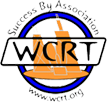
Estate Planning FAQs—Answered by a Chicago, IL Attorney
Question
My grandfather died in Chicago, leaving a will naming me as executor and sole beneficiary. His assets consisted of his Chicago home, with no mortgage, worth about $525,000, which we plan to sell, as well as CDs, bank accounts and mutual funds adding up to about $155,000. I plan to sell the home as soon as possible. What must I do to transfer the assets and settle the estate?
Answer
In this case, the opening of a probate estate will be the most efficient and lowest cost way to do this. Although the estate will have to remain open until six months after there is publication for claims; at that point any further claims against the estate are barred forever. Further, the attorney fees and court costs of the probate proceeding would be less than the cost of transferring the real estate through use of a title insurance company “Bond in Lieu of Probate,” which would incur a significant bond premium based upon the value of the real estate. You need not wait until conclusion of the estate to close the sale of the real estate either; this may be done just as soon as a buyer is found and he receives his mortgage financing.
Question
All of my assets were held in joint tenancy with my wife, who just died. We had a home in Cook County worth about $350,000, a vacation condominium in Ft. Lauderdale, Florida worth about $220,000 and stocks, bonds and saving accounts of about $200,000. I am 63 years old. After I am gone, I want to leave everything to my three children, two of whom themselves have children. What do you recommend that I do now?
Answer
Clearing up title to the joint tenancy assets should be a relatively easy task, which we can talk you through doing yourself, armed with copies of the death certificate of your wife. Joint tenancy between a husband and wife is one of the most popular estate plans for couples with assets that don’t approach the levels where there would be a federal estate tax involved. However, now is the time to talk to a Chicago Estate Planning Lawyer about estate planning for yourself. Considering the multi-state real estate ownership and your age, you should probably strongly consider the creation of a declaration of trust or living trust for yourself, coupled with a “pour-over” will, which would provide that if there were any assets owned by you at death, they would “pour-over” into the trust. After the documents were drafted and signed, our Chicago Estate Planning Attorneys would guide through actually transferring all of your assets into your trust. Under the trust, you would be your own trustee until your death, resignation, or determination of legal inability to handle your affairs. At that time, the person or persons appointed as successor trustee would take over, with a minimal amount of paperwork and no need for any probate proceeding, “Bond in Lieu of Probate,” or other such arrangement. The trust could also provide for the handling of any assets given to or for the benefit of your minor grandchildren.
Question
What is Probate in the case of a Chicago deceased person?
Answer
Probate is a court process of proving the validity of a Will, transferring property, and settling the affairs of the deceased’s estate. If there is no Will, the probate court appoints a person known as known as an Administrator to settle the deceased’s affairs. For example, the loved ones left behind often initiate a Probate proceeding in order to sell a house or real property which was titled to the deceased person.
Question
What is the purpose of Probate?
Answer
Probate is the legal avenue to establish clear title to, or ownership of assets and to clear up and settle any claims against the decedent’s estate. Upon one’s death, before title can pass, the Court must determine who will receive the deceased person’s estate, and all other potential heirs and others must be eliminated. This process is known as probate.
Question
When should Probate be started?
Answer
Probate should start as soon as possible following the person’s death. This permits the Executor or Administrator to immediately take charge of matters and prevent waste or loss of assets.
Question
What are the alternatives to Probate?
Answer
There are several:
- Pre-death planning. Probate can be completely avoided in the event of death by the use of joint tenancy ownership between spouses in smaller estates or in larger Chicago estates, through the use of a living trust or declaration of trust, in which title to assets are then held.
- Small Estates Affidavit. Personal property (as opposed to real estate) of as much as $100,000 can be transferred after the death of an Illinois resident through the use of a Small Estates Affidavit.
- Title Insurance. In the case of real estate, title may be transferred by the use of a “Bond in lieu of Probate,” where a bond premium or fee is paid to the title insurer, in exchange for the insurer taking the risk of guaranteeing good title to a purchaser even though no probate proceeding was utilized. However, the required bond premium can in many cases actually exceed the cost of probate.
Question
How do I get started?
Answer
Contact one of our Chicago Estate Planning Attorneys first for a free consultation. We will discuss with you the process and what is needed and assist you in determining the best way to settle the estate. We will help you in the process of collecting the assets and at the appropriate time, help you make the proper distribution among the heirs of the estate and a final accounting that is filed with the Court. We will provide assistance in guiding you in the preparation of the tax returns for the Estate, obtaining a tax identification number for the Estate and in selling any real estate, stock or other assets of the Estate.
Question
Can I be the Executor, Administrator or the Trustee for the Estate even if I cannot afford the legal fees?
Answer
If you do not have the money to pay the attorney in the beginning and you meet certain criteria, the legal fee can be paid as part of the process of settling the estate, out, out of the Estate’s assets.
Question
A friend just died, with a substantial estate, consisting of real estate, a large portfolio of stocks as well as CDs and bank accounts. After searching, we have been unable to locate a will. He is survived by his 88 year mother, who is herself quite wealthy, and by a sister and two minor children of a brother who died last year. What happens with his estate?
Answer
Under these circumstances, opening a probate estate will be necessary for determination of heirship and transfer of assets. Because there is no will (which usually waives surety), the administrator of the estate will have to provide a surety bond in the sum of one and one half times the value of the personal property plus the annual income from the real estate, which will likely require an annual bond premium of several thousand dollars. The assets will actually pass under the Rules of Descent and Distribution of the Illinois Probate Act. Under the circumstances you described, one half of your friend’s estate would go to his wealthy 88 year old mother, one fourth to his sister and one eighth each to the minor children of his deceased brother, possibly requiring a guardianship proceeding for each the minors until they are of age. (This is very likely not the result your friend would have preferred had he thought about it and done some estate planning.)
To see the kind of estate plan the state will create for you, if you don’t do it yourself, click here to see a copy of the Illinois Laws of Descent and Distribution.
Just Click Here For Answers to Frequently Asked Questions (FAQS) Regarding Estate Planning for Your Pets.
Some Important Links that you can click on:
If these questions and answers have not answered all of your questions, feel free to contact one of our Chicago Estate Planning Lawyers at any time for more answers or for a consultation.
Cook County Probate Court Official Forms
For your convenience, here are links to some of the official forms most frequently used in the Probate Court of Cook County:
- Claim Form
- Claim Order
- Petition for Guardian of Disabled Person
- Petition for Letters of Administration to Collect
- Probate Division Cover Sheet
- Summons for Appointment of Guardian of Disabled Person
- Waiver of Notice
- Oath and Bond of Representative – Surety
- Oath and Bond of Representative – No Surety
- Order Appointing Representative of Decedent’s Estate –Intestate
- Petition for Probate of Will and Issuance of Letters Testamentary
- Petition for Probate of Will and Issuance of Letters of Administration With the Will Annexed
- Affidavit as to Copy of Will
- Order Admitting Will to Probate and Appointing Representative
- Order Denying Will to Probate
- Order Declaring Heirship
- Citation
- Notice of Account
- Receipt on Distribution
- Appearance on Account
- Notice of Probate and Release of Estate’s Interest in Real Estate
- Probate Court Clerk Schedule of Filing Fees
- Final Report of Independent Representative
- Petition to Convert to Independent Administration
- Order Converting to Independent Administration for Purpose of Closing Estate
- Order Converting to Independent Administration (Estate to Remain Open)
- Receipt and Approval on Closing of Decedent’s Estate in Independent Administration








